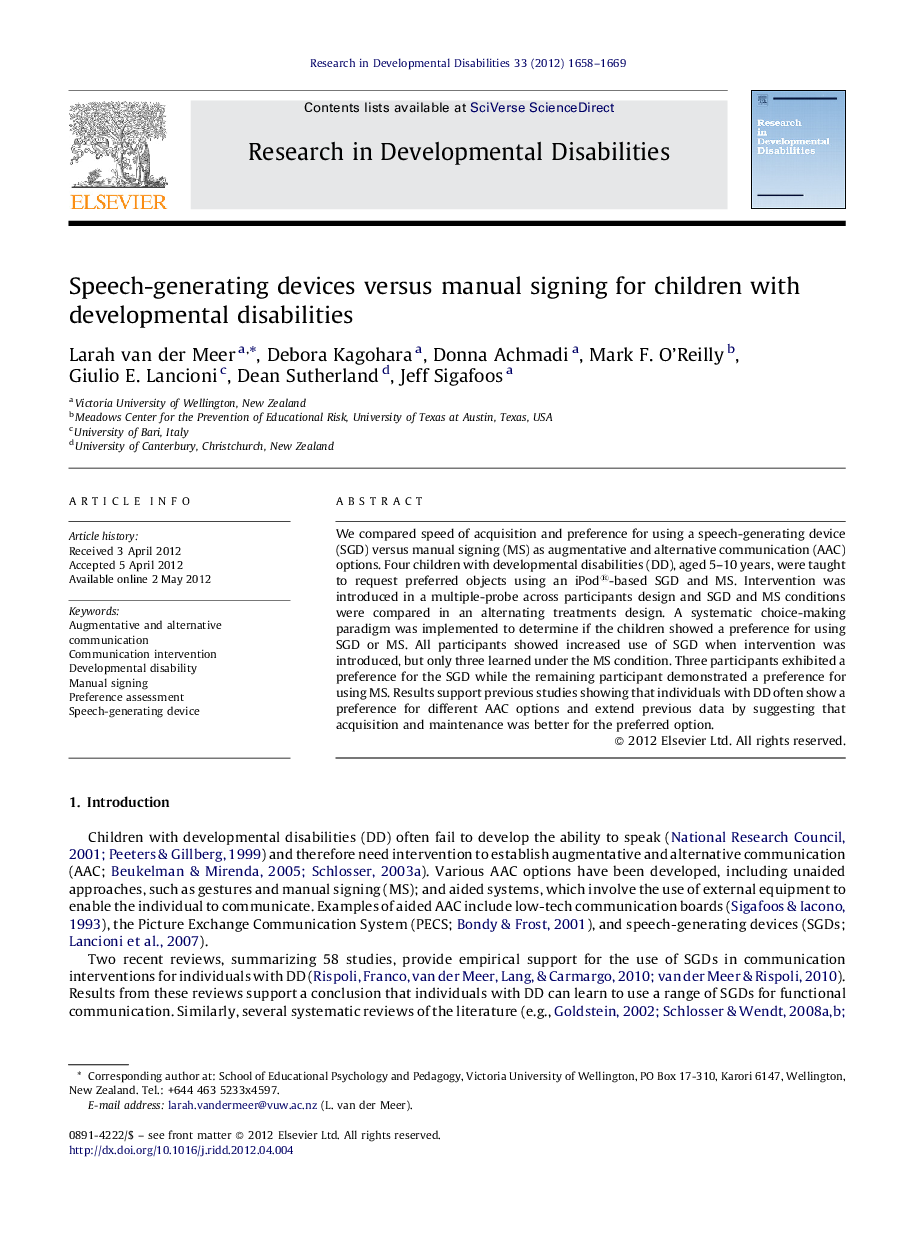| Article ID | Journal | Published Year | Pages | File Type |
|---|---|---|---|---|
| 371989 | Research in Developmental Disabilities | 2012 | 12 Pages |
We compared speed of acquisition and preference for using a speech-generating device (SGD) versus manual signing (MS) as augmentative and alternative communication (AAC) options. Four children with developmental disabilities (DD), aged 5–10 years, were taught to request preferred objects using an iPod®-based SGD and MS. Intervention was introduced in a multiple-probe across participants design and SGD and MS conditions were compared in an alternating treatments design. A systematic choice-making paradigm was implemented to determine if the children showed a preference for using SGD or MS. All participants showed increased use of SGD when intervention was introduced, but only three learned under the MS condition. Three participants exhibited a preference for the SGD while the remaining participant demonstrated a preference for using MS. Results support previous studies showing that individuals with DD often show a preference for different AAC options and extend previous data by suggesting that acquisition and maintenance was better for the preferred option.
► Four children with developmental disabilities were taught to request preferred snacks or toys using an iPod®-based speech-generating device (SGD) and manual signs (MS) ► Preference for using SGD versus MS was assessed during and after acquisition training ► The intervention led to acquisition of SGD and MS use and three participants demonstrated a preference for the SGD.
